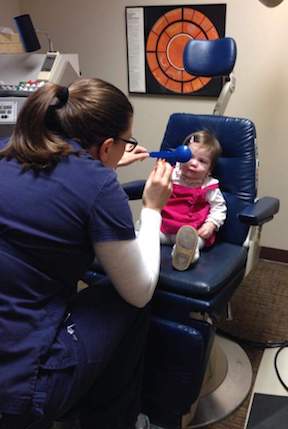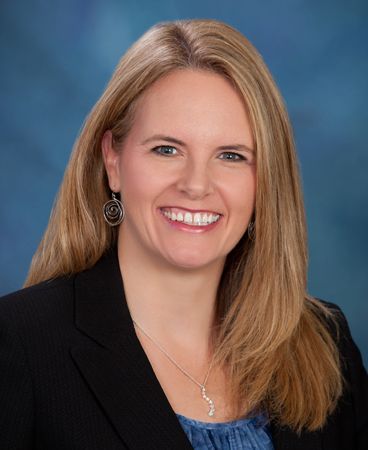 Good vision is key to your child’s success in school, but it is more than 20/20 eyesight or the ability to see clearly. Vision doesn't just happen. A child's brain learns how to use eyes to see, just like it learns how to use legs to walk or a mouth to form words. The longer a vision problem goes undiagnosed and untreated, the more a child's brain chooses poor splinter skills to adjust to their vision problem. An estimated 80% of what a child learns is through visual input. When vision is compromised, learning and participation in activities will suffer. The vision screenings given by your child’s pediatrician or at his or her preschool are very different from a Comprehensive Eye and Vision Examination with an Optometrist. Vision screenings usually assess only one or two areas of vision. They seldom evaluate how well the child can focus his or her eyes or how well the eyes work together, nor adequately assess whether glasses are needed to help a child see clearly. Depth perception, eye aiming, tracking, eye focusing, and color vision – important focuses in school and learning are rarely tested.
Good vision is key to your child’s success in school, but it is more than 20/20 eyesight or the ability to see clearly. Vision doesn't just happen. A child's brain learns how to use eyes to see, just like it learns how to use legs to walk or a mouth to form words. The longer a vision problem goes undiagnosed and untreated, the more a child's brain chooses poor splinter skills to adjust to their vision problem. An estimated 80% of what a child learns is through visual input. When vision is compromised, learning and participation in activities will suffer. The vision screenings given by your child’s pediatrician or at his or her preschool are very different from a Comprehensive Eye and Vision Examination with an Optometrist. Vision screenings usually assess only one or two areas of vision. They seldom evaluate how well the child can focus his or her eyes or how well the eyes work together, nor adequately assess whether glasses are needed to help a child see clearly. Depth perception, eye aiming, tracking, eye focusing, and color vision – important focuses in school and learning are rarely tested.
Birth to 24 Months of Age – at about 9 months of age, even if no eye or vision problems are apparent, your baby should have his first eye examination with an optometrist. Your child will be tested for:
- Excessive or unequal amounts of nearsightedness, farsightedness or astigmatism.
- Eye movement difficulties and poor eye alignment
- Eye health problems
Olympia Vision Clinic is a proud participant in InfantSee a public health program of the American Optometric Association. Under this program participating optometrists provide infants between 6 and 12 months of age with a comprehensive Infant Eye Exam as a no cost public service.
School Age Vision – Your child should visit an optometrist for a Comprehensive Eye Examination by age 3 to ensure his or her vision is developing properly and there is no evidence of eye disease. This is a critical period for finding problems with eye aiming. If a problem is diagnosed, your optometrist can prescribe treatment – including eyeglasses and or vision therapy to correct it. Unless advised otherwise, your child’s next eye examination should be at age 5. By comparing results from the two examinations, your eye doctor can evaluate your child’s visual development and help ensure they are prepared for the next major step into the school years.
Learn more about Children's eye exams.
Our team at Olympia Vision Clinic has the training and technology required to perform regular and special needs vision health exams for children. Dr. Joanna Haws our pediatric specialist, has 17yrs’ experience working with children and children’s vision issues. Based on your child’s individual needs, she will prescribe a treatment program which can include glasses, contact lenses or vision therapy treatment.

Dr. Joanna Haws - Pediatric Specialist
